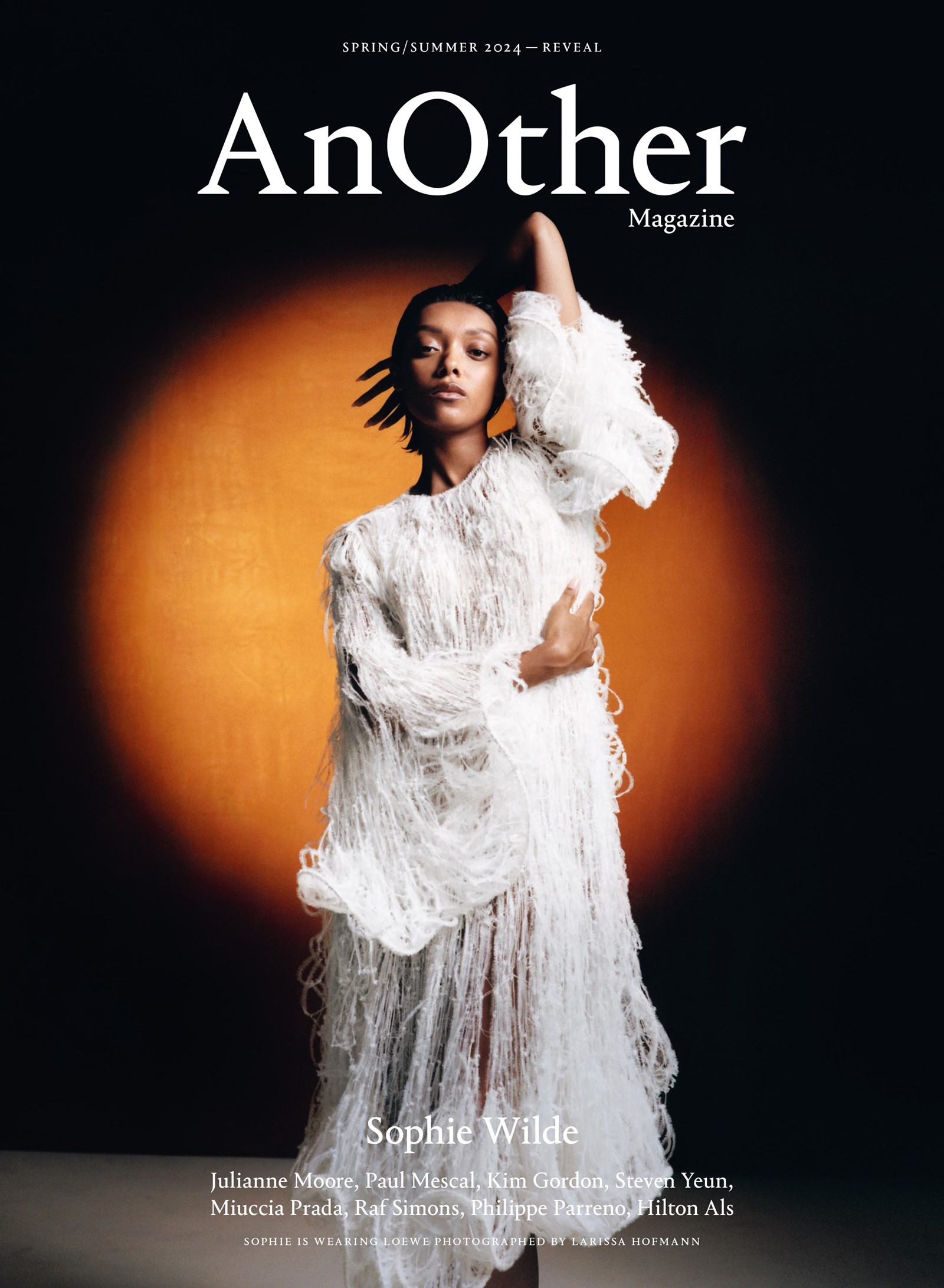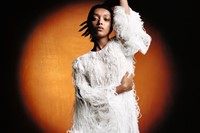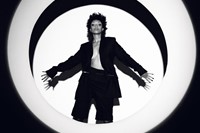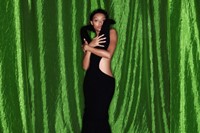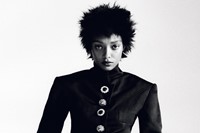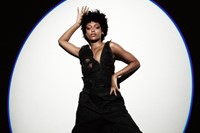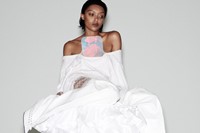This article is taken from the Spring/Summer 2024 issue of AnOther Magazine:
There’s a guileless vulnerability to the actor Sophie Wilde that evokes Audrey Hepburn. It’s partly her physicality: enormous, brimming eyes, capable of expressing defiance and despair in a single glance; her gamine gait — even when she’s dressed in an oversized sweatshirt, as in the grisly, critically acclaimed horror Talk to Me, Wilde is elegant; and of course, there’s her close-cropped hair. When I mention the resemblance, Wilde cites Hepburn as a longtime hero — she credits her parents’ VHS boxset of Hepburn films with inspiring her to pursue a career onscreen: “I watched Roman Holiday and said, ‘That’s what I want to do,’’ she says.
Wilde is already well known in her native Australia, and following her breakout roles in the British thriller You Don’t Know Me and Netflix teen comedy-drama Everything Now, she has rapidly been emerging as a favourite on the indie cinema scene. Talk to Me — an Exorcist for the social media age that was snapped up for distribution by the entertainment powerhouse A24 (the company also behind Priscilla, The Zone of Interest and Everything Everywhere All at Once) — recouped $92 million at the global box office, on a $4.5 million budget. When we speak, Wilde is about to start filming another A24 drama, Babygirl, a study of power dynamics starring Nicole Kidman as a New York CEO who embarks on an affair with a young intern, played by the Triangle of Sadness lead Harris Dickinson — Wilde will play Kidman’s all-seeing assistant. She has also just been nominated for this year’s rising star Bafta, alongside Priscilla’s Jacob Elordi, The Bear’s Ayo Edebiri and Mia McKenna-Bruce from How to Have Sex. “It’s insane to be considered among this group of people,” Wilde says. “And so many incredible actors have been nominated for it in the past.”
Wilde was five when she told her parents she wanted to be an actor. “It’s pretty much the earliest thing I can remember wanting to do,” she says, telling a story of the time her grandparents took her to see a production of My Fair Lady and she refused to leave her seat when her family went to buy snacks during the interval. “I was just so mesmerised, I couldn’t move,” she says. We’re speaking via Zoom on a Friday night. Wilde is in Sydney and has spent the afternoon trying to decide what to wear to a drum and bass rave later that evening. She is gregarious, a little goofy and quick to poke fun at herself, with an unassuming presence that belies her talent. Onscreen, Wilde can infuse even the most unlikely role — the demonically possessed teen Mia in Talk to Me, for example — with empathy and a lightness of touch. Characters that might appear clichéd, in Wilde’s hands are entirely believable. “My favourite moments in acting, and I think they are rare, are when you are so in it,” she says. “You are engaged, you are present, you are there.”
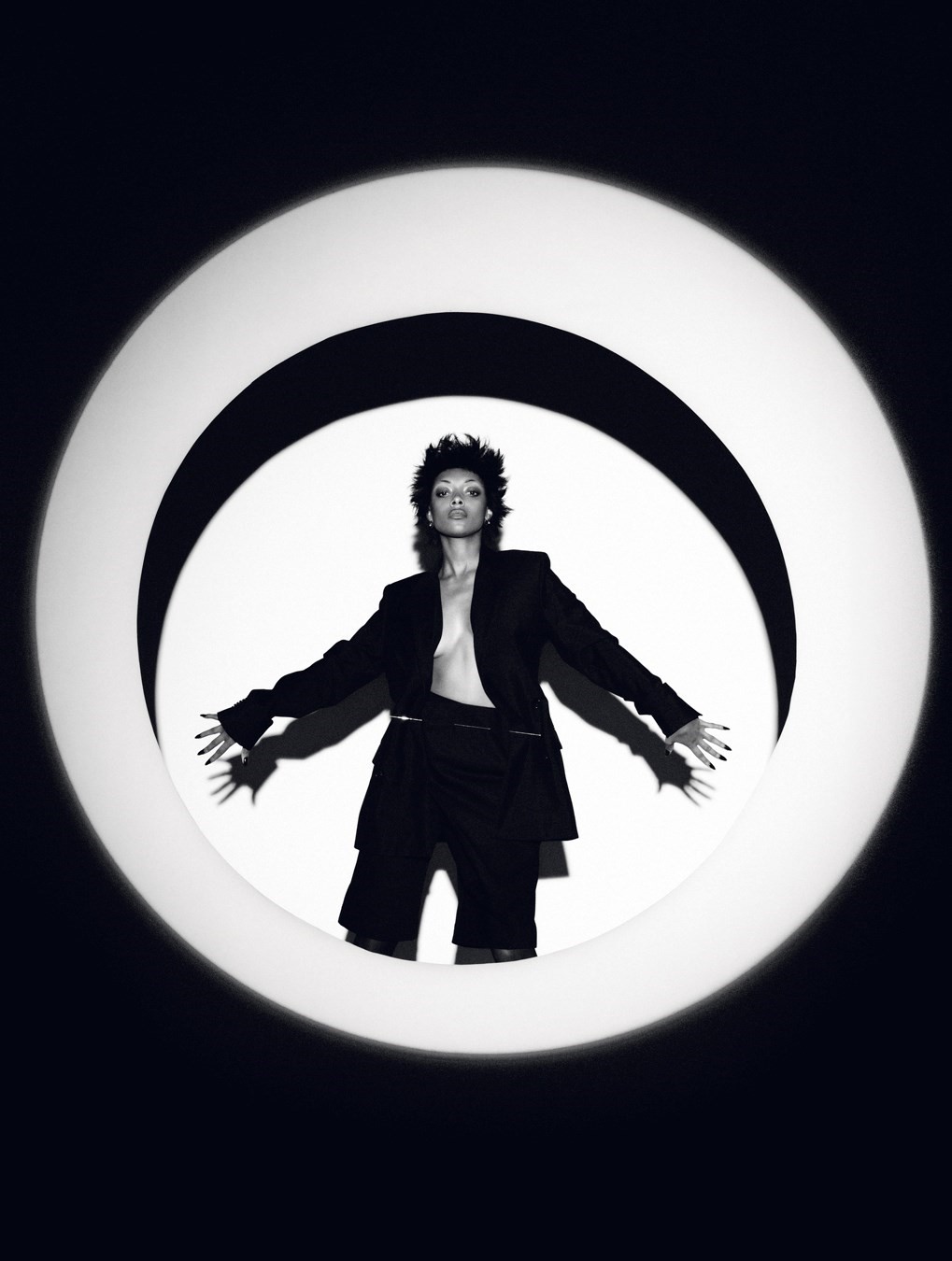
In Talk to Me, Wilde’s performance is hugely physical and disturbing. Eyes bulging, mouth slackening, liquid limbs straining one minute, awkward teen longing, sneaking sly glances at her best friend’s boyfriend the next. “I remember I read it and was like, ‘I need to do this,’” she says of the script. “I thought, ‘That’s mine.’”
The film stormed Sundance and Wilde signed with the Hollywood agency William Morris Endeavor soon afterwards. But when she first watched the film back she hated her performance. “It took two more times watching it for me to think maybe I wasn’t that bad,” she says. “Now I watch it and I think, ‘No, girl, you did a great job.’”
“My favourite moments in acting, and I think they are rare, are when you are so in it” – Sophie Wilde
While she is warm and relaxed, her easy demeanour is clearly underpinned by ferocious ambition and relentless drive. “I’m hardworking,” she says. And tough on herself? “My parents say that to me all the time.”
Wilde is of Ivorian-Australian heritage. Her mother, a grief counsellor, met her father, a visual artist and businessman, when he was on a “soul-searching quest through Africa”. She also has a five-year-old brother. They’re a tight unit and, for now, Wilde is based close to them in Sydney’s Newtown. “They’re really my best friends,” she says, “and the biggest support system I have. They’ve had to coach me through so many intense bouts of imposter syndrome and at this point I have to say, ‘I’m sorry I keep doing this. I love you guys.’”
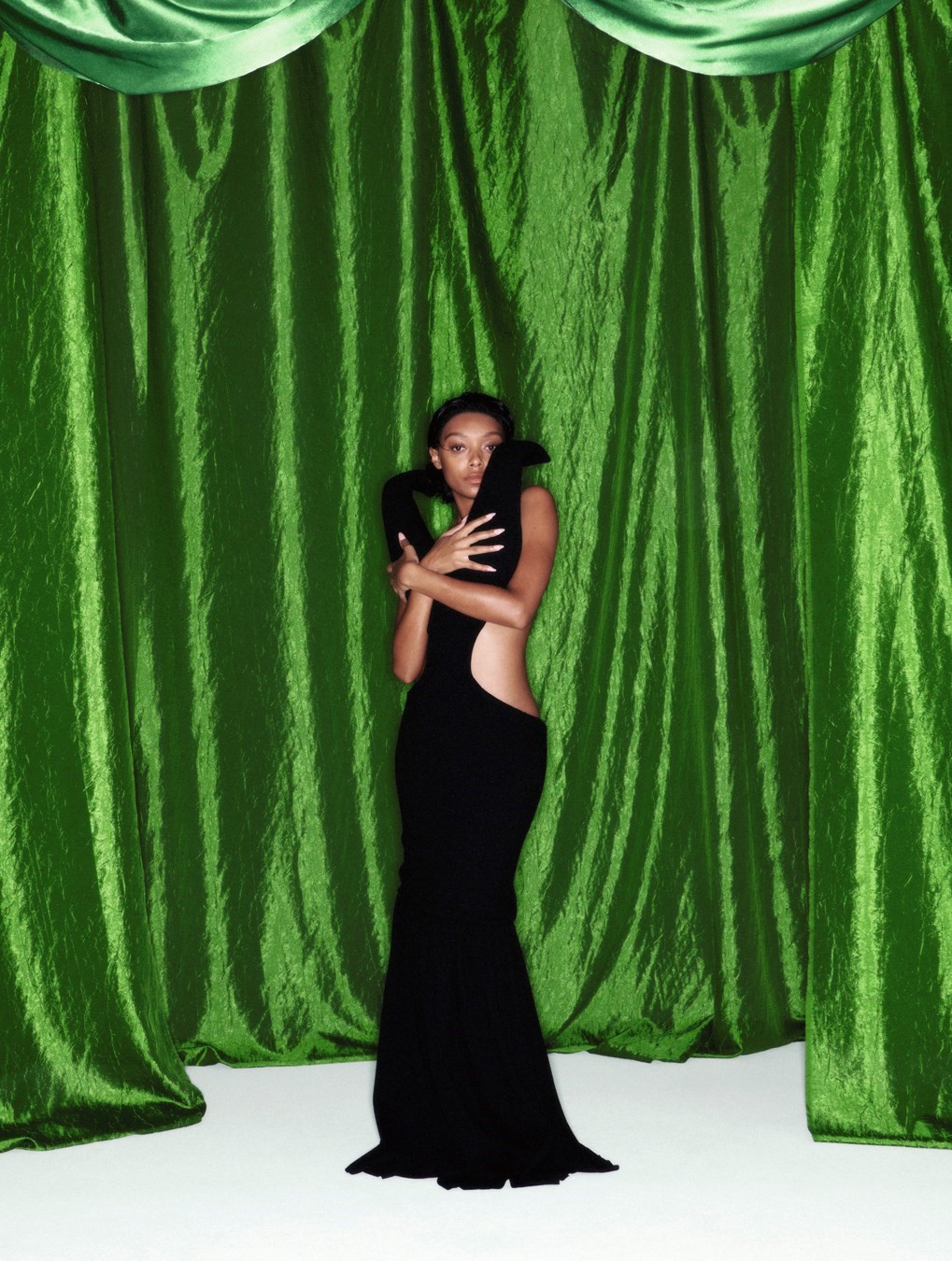
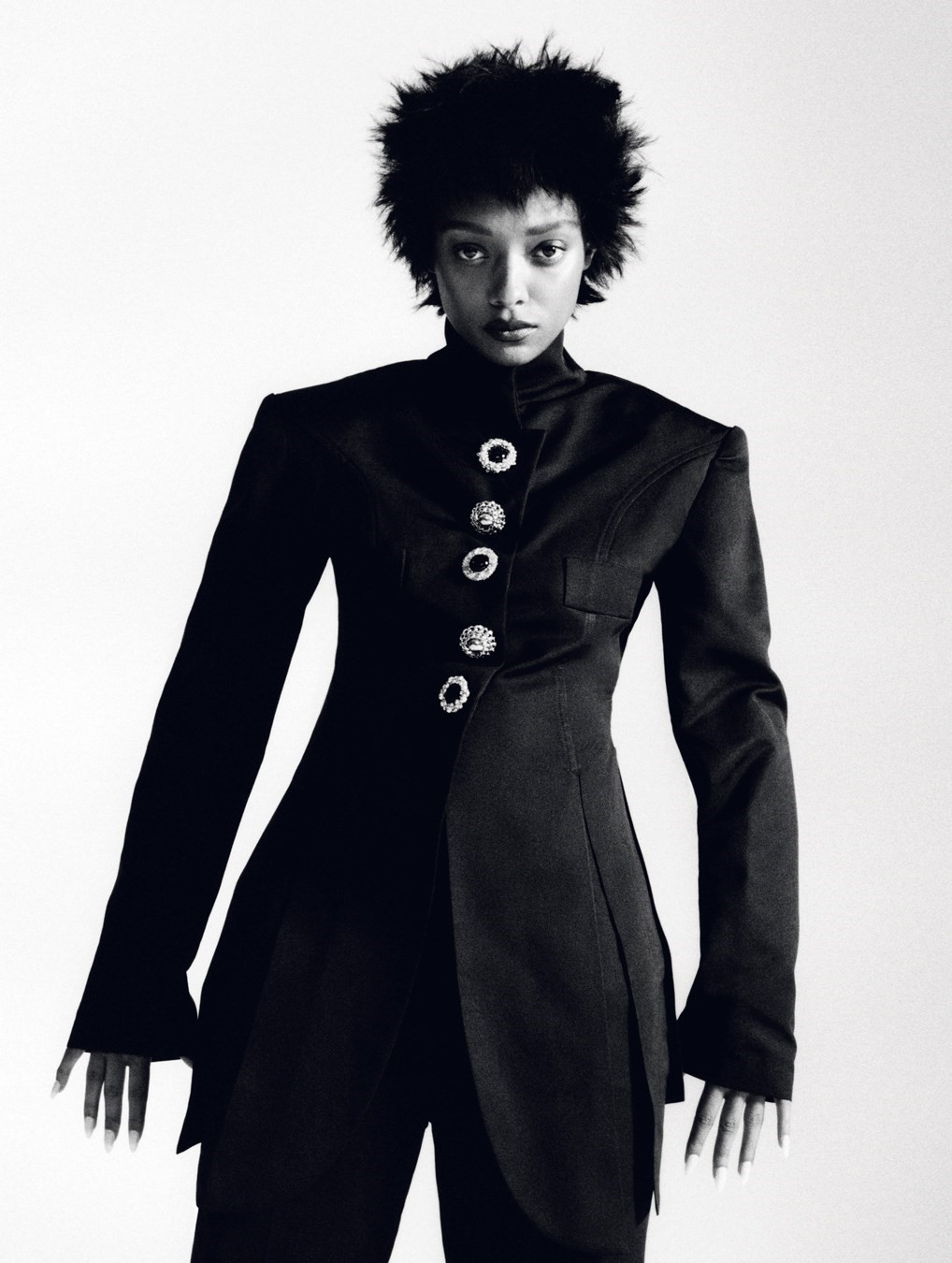
Wilde graduated in 2019 from Sydney’s National Institute of Dramatic Art (NIDA), where actors including Succession’s Sarah Snook and Cate Blanchett also trained. Not long after graduating, Wilde played Ophelia in a lauded production of Hamlet at the Sydney Royal Opera House — she has worked nonstop since. “But I still struggle with failure,” she says, “which is ridiculous because I can see how important it is in a profession like this.” With such a start, it’s hard to imagine there have been many missteps. “I’ve certainly felt like I have failed, but my parents often remind me, ‘It’s never as bad as you think it is and it’s never as bad as you felt it was in the moment.’”
At NIDA, she says she was insecure, nervous and intimidated by her contemporaries to start with. “In second year we did this play and I bombed,” she remembers. “It was horrible.” But also cathartic. “After that, NIDA was a breeze in terms of performance. It’s so silly. Failure is a good thing. It’s an amazing thing. It allows you to be free and liberated.”
Wilde’s memories of drama school are so fresh in her mind — and her appearance so youthful — she might easily be mistaken for a recent graduate. She is, in fact, 26. There’s an innocence and sweetness about her, which is presumably the reason she is still being cast as a teenager. A Left Bank Pictures co-production (its other productions include The Crown), Everything Now follows Wilde’s character, coincidentally also called Mia, as she’s discharged from hospital. She returns to her London secondary school, only to realise that her close-knit gang of friends have discovered the messy joys of partying, alcohol and sex while she has been receiving treatment for anorexia. Mia’s often thwarted attempts to catch up on everything she has missed are touching and, at times, comedic. “I auditioned for that role when I was shooting Talk to Me,” Wilde says. “I wanted to do something stylistically very different. It had this quirkiness and humour.”
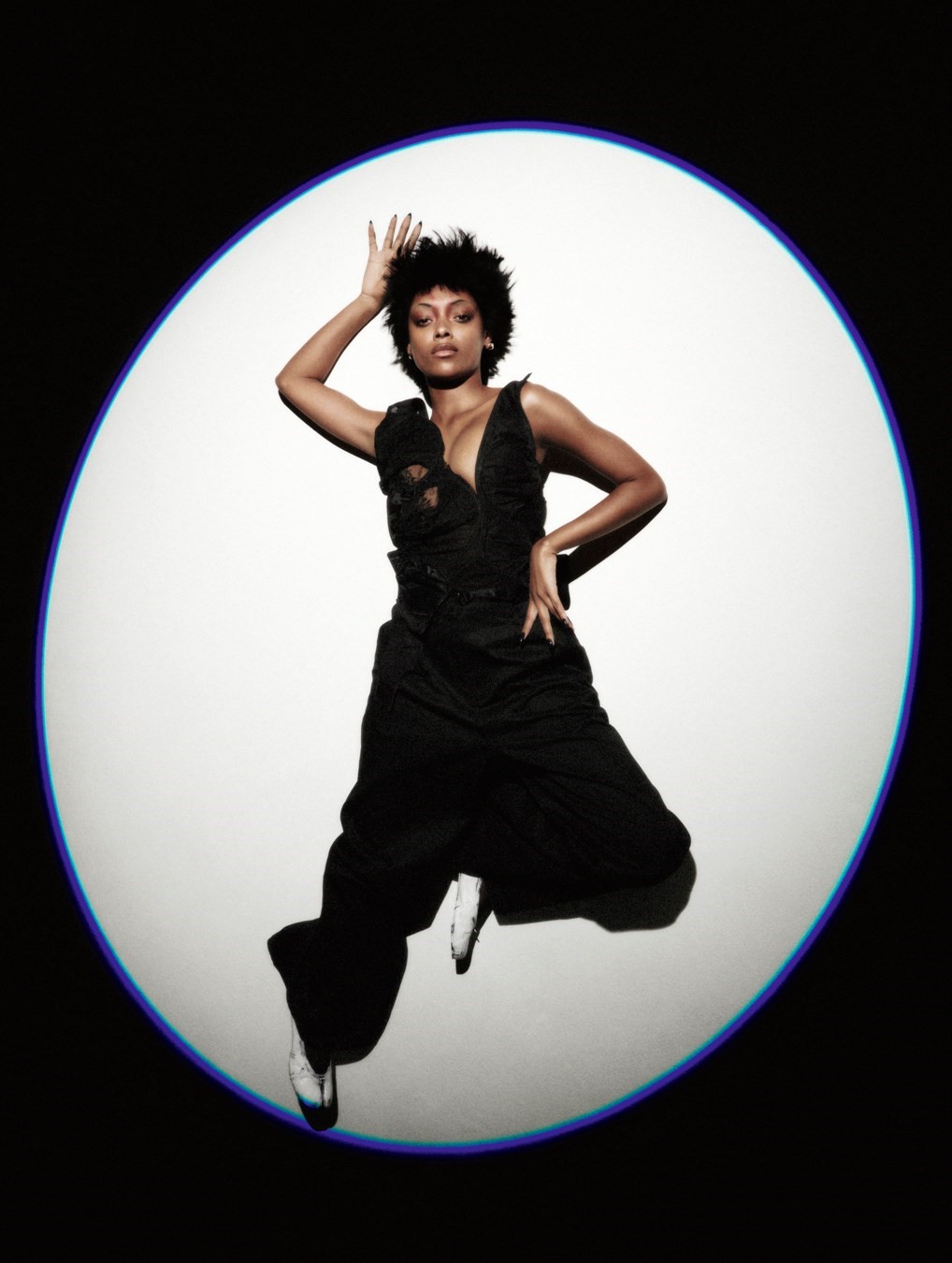
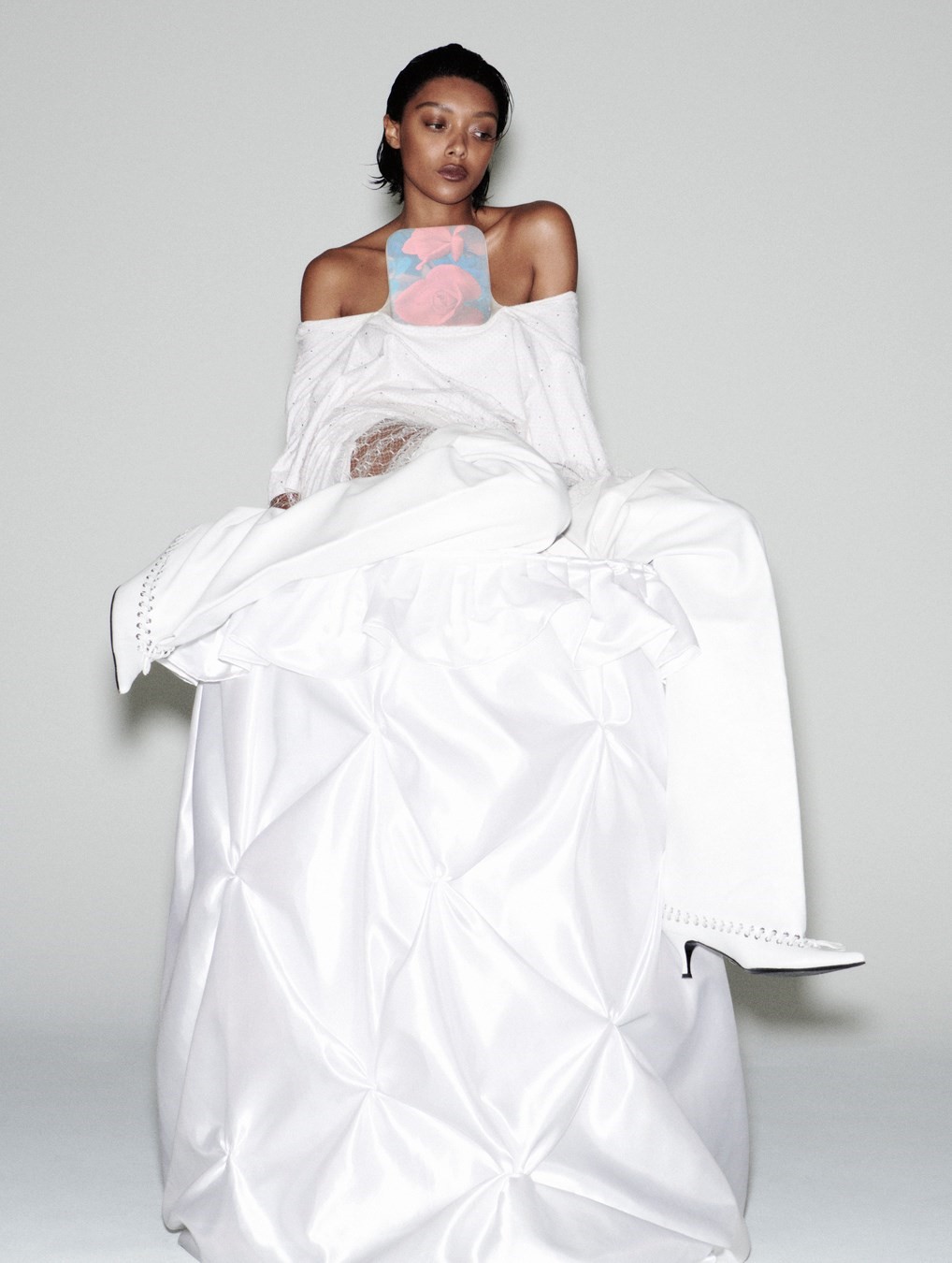
Ostensibly a show about recovery, Everything Now is also a tender portrayal of the beautiful, and transient, intensity of teenage friendship. That is something Wilde identifies with. “I’m so grateful for my friends,” she says. “They’re the grounding force of my life. I talk to them every day and they’re always there to support me.” Many are outside the industry. “It’s nice to come home,” she says. “They don’t give a fuck about any of it.”
Hair: Dylan Chavles at MA+Talent using ORIBE. Make-up: Fara Homidi at The Good Company using FARA HOMIDI BEAUTY. Manicure: Dawn Sterling at EDMA using NAILGLAM. Set design: Caz Slattery at CLM. Choreographer: Eric Christison at Parent. Photographic assistants: Pierre Lequeux and Matthew Perino. Styling assistants: Honor Dangerfield, Max Weinstein and Joseph Reyes. Hair assistant: Olivia Mairéad. Make- up assistant: Jason Case. Set-design assistant: Kate Atkinson. Production: Stevie Williams at x2 Production and The Good Company
This story features in the Spring/Summer 2024 issue of AnOther Magazine, which is on sale internationally on 29 February 2024. Pre-order here.
